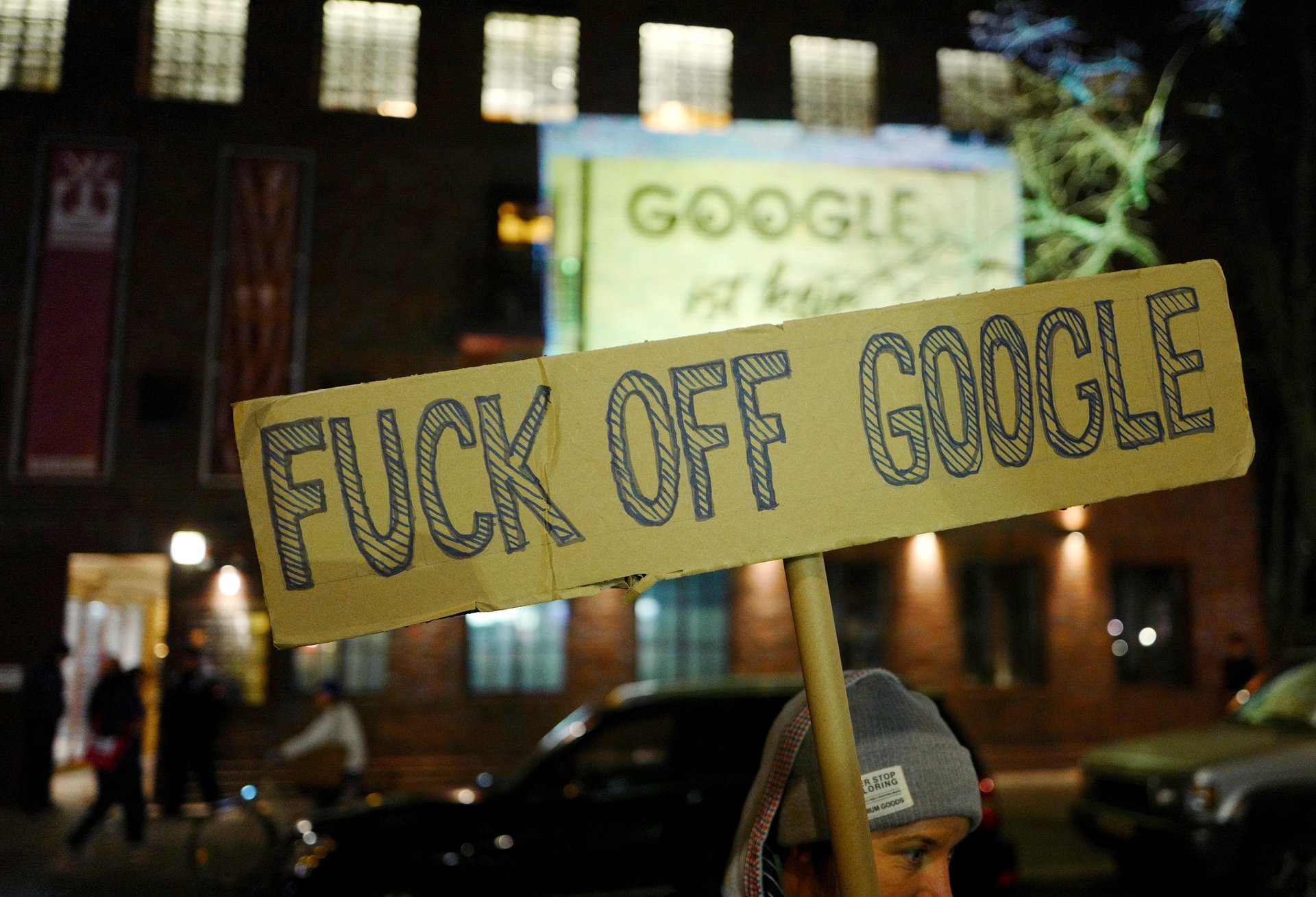Google has lost its fight with locals to build a campus in Berlin
In 2016, Google announced its plans to convert a former electrical substation into a new 3,000-square-foot campus in Berlin’s trendy Kreuzberg district. Locals have been protesting ever since.


In 2016, Google announced its plans to convert a former electrical substation into a new 3,000-square-foot campus in Berlin’s trendy Kreuzberg district. Locals have been protesting ever since.
Today (Oct. 24), Google threw in the towel, announcing that it would hand the property over to two charitable organizations—the Betterplace donations platform and Karuna youth charity—to turn the space into a “house for social engagement.”
Google has six campuses around the world, including in London, Sao Paolo, and Paris. Designed as coworking spaces for startups and entrepreneurs, they are distinct from the company’s 70 offices in 50 countries (including an office in Berlin).
Google’s spokesperson Ralf Bremer denied that ongoing campaigns against the campus were what finally drove the internet giant to abandon the plan. “We don’t allow ourselves to be dictated to by protests,” Bremer told the Berliner Zeitung (link in German). He added that after discussions with various social organizations in the neighborhood, Google had decided that using the old station for community purposes was “the best solution for Kreuzberg.” Bremer says the company has no plans to build a campus anywhere else in the city.
Google’s plan to set up shop in Kreuzberg stoked fears that it would speed up gentrification in what was once predominantly a working-class neighborhood. Now, like the rest of Berlin, residents and businesses are struggling with sky-rocketing property prices. Google would not have been alone in moving to the creative neighborhood—quite a few tech companies, including Mozilla and WeWork, are already there.
Konstantin Sergiou, a member of one of the neighborhood campaign groups, told the Guardian in May that the Google campus signaled the kind of urban change “that has proven to be so problematic elsewhere, such as in San Francisco.” He noted that a several different tenants’ groups and activists had been working to halt gentrification in Kreuzberg. “When Google decided to move into the area, we were already organized.”